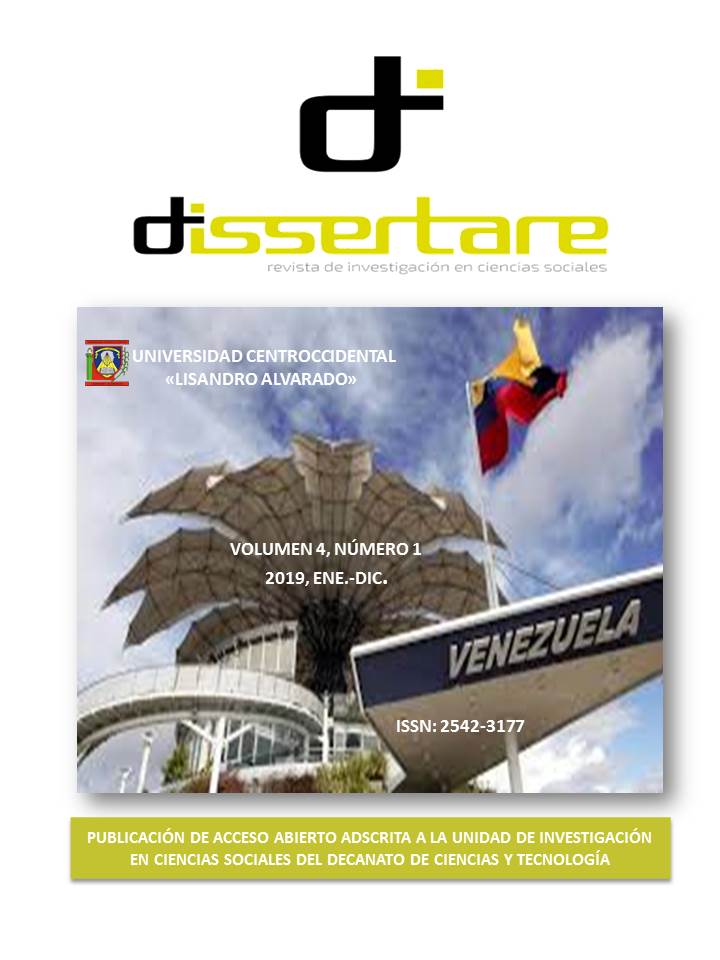El Rabindranath Tagore's educational thinking and its link with the human development
Keywords:
Rabindranath Tagore, education, pedagogical currents, human development, capacitiesAbstract
This essay put forward three purposes related to the thought and educational action of the Indian poet Rabindranath Tagore. The first purpose was to describe the sources of his philosophy and his educational practices framed in their historical context. The second purpose dealt with establishing the bonds of his educational thinking with some of the pedagogical currents of the Western world. The third purpose revolved around the connections of his educational thinking with the contemporary paradigm of human development and the capabilities approach. The method applied in the paper was critical hermeneutics. In the essay, it is concluded that Tagore's educational thinking is valid, has similarities with nowadays current western pedagogy and has compatibility with the capabilities approach, based on the premises of creativity, freedom of thought and transforming potential of education in the individual and collective area. Due to its universalistic spirit and its validity, Tagore's educational thought can be adopted as a reference in the formulation of policies aimed at establishing a transforming education of social reality.
Downloads
References
Argüello Scriba, S. (2017). El pensamiento educativo de Rabindranath Tagore en dos grandes educadores costarricenses: Omar Dengo y Joaquín García Monge. Revista Electrónica Actualidades Investigativas en Educación, 17(1), 1-20. DOI: https://doi.org/10.15517/aie.v17i1.27296.
Argüello Scriba, S. (2004). Rabindranath Tagore y sus ideales sobre la educación. Revista Educación, Universidad de Costa Rica, 28(2), 75-90.
Cejudo Córdova, R. (2007). Capacidades y libertad. Una aproximación a la teoría de Amartya Sen. Revista Internacional de Sociología, 65(47), 9-22.
Freire, P. (2009). Cartas a quien pretende enseñar. Buenos Aires, Argentina: Siglo XXI.
Freire, P. (2005). Pedagogía del oprimido. México DF, México: Siglo XXI.
Freire, P. (2006). El grito manso. Buenos Aires, Argentina: Siglo XXI Editores.
Jha, N. (1999). Rabindranath Tagore (1861-1941). Organización de las Naciones Unidas para la Educación, la Ciencia y la Cultura (UNESCO), Oficina Internacional de educación, Recuperado de http://www.ibe.unesco.org/sites/default/files/tagores.PDF.
Meléndez Rojas, R. (2017). Prospectiva para la educación costarricense. Una oportunidad de transformar el sistema educativo para el Siglo XXI. Revista Actualidades Investigativas en Educación, 17(3), 1-24. DOI: https://doi.org/10.15517/aie.v17i3.29072
Morin, E. (2008). La cabeza bien puesta. Bases para una reforma educativa. Buenos Aires, Argentina Ediciones Nueva Visión.
Nussbaum, M. (2016). Educación para el lucro, educación para la libertad. Revista Nómadas, Universidad Central Colombia, (44), abril 2016, 13-25.
Nussbaum, M. (2012). Crear Capacidades. Propuesta para el desarrollo humano. Barcelona, España: Paidós.
Organización de las Naciones Unidas. (2015). Transformar nuestro mundo. La Agenda 2030 para el Desarrollo Sostenible. (A 69/L.85) Nueva York, Estados Unidos.
Paz-Rodríguez, J. (2005). Tagore, un precursor de la nueva educación en La India. Recre@rte, 3. Recuperado de http://www.iacat.com/revista/recrearte/recrearte03/tagore/tagore.htm.
Paz-Rodríguez, J. (2014). Robindronath Tagore (1861-1941). Padres y Maestros, 359, 34-40. Recuperado de: http://revistas.upcomillas.es/index.php/padresymaestros/article/view/4434/4251.
Pearson, W. (1948). Shantiniketan. En: R Tagore. Morada de Paz (Shantiniketan), (23-78). Buenos Aires, Argentina: Losada.
Pushpanathan, T. (2013). Rabindranath Tagore´s philosophy of education and its influence on Indian education. International Journal of Current Research and Academic Review, 1(4), 42-45.
Savater, F. (1997). El valor de educar. Bogotá, Colombia: Ariel.
Sen, A. (2010). La idea de la justicia. México DF, México: Taurus.
Sen, A. (2004). ¿Cómo importa la cultura en el desarrollo? Revista Letras Libres, (71), 23-30.
Sen, A. (2000). Desarrollo y Libertad. Bogotá, Colombia: Planeta.
Singh, R. y Singh, R. (2013). Rabindranath Tagore´s Contribution in Education. International Journal of Technical & Non Technical Research, 4(8), 201-208.
Tagore, R. (1948). Morada de Paz (Shantiniketan). Buenos Aires, Argentina: Losada.
Tagore (1967). Hacia el hombre universal. Barcelona, España: Sagitario S.A.
Tagore, R. (2012). Nacionalismo. Barcelona, España: Taurus.
Tagore, R. (2014). El maestro ideal. Recuperado de: http://mirelesespacioeducativo.blogspot.com/2014/07/el-maestro-ideal-rabrindranath-tagore.html.
Published
How to Cite
Issue
Section
Derechos del/de autor/es a partir del año de publicación
Esta obra está bajo la licencia:
Creative Commons Reconocimiento-NoComercial-CompartirIgual 4.0 Internacional (CC BY-NC-SA 4.0)
Las opiniones expresadas por los autores no necesariamente reflejan la postura del editor de la publicación ni de la UCLA. Se autoriza la reproducción total o parcial de los textos aquí publicados, siempre y cuando se cite la fuente completa y la dirección electrónica de esta revista. Los autores(as) tienen el derecho de utilizar sus artículos para cualquier propósito siempre y cuando se realice sin fines de lucro. Los autores(as) pueden publicar en internet o cualquier otro medio la versión final aprobada de su trabajo, luego que esta ha sido publicada en esta revista.





